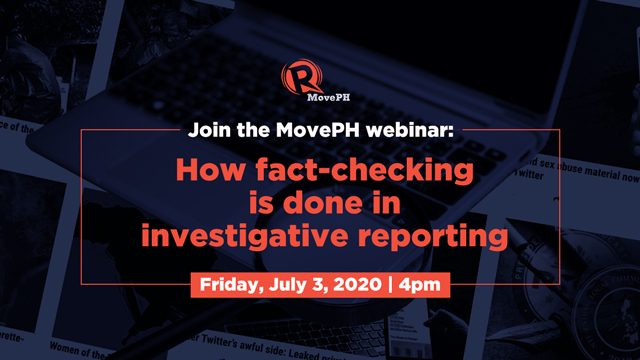SUMMARY
This is AI generated summarization, which may have errors. For context, always refer to the full article.

MANILA, Philippines – As online disinformation becomes widespread, truth becomes a casualty. In this fact-finding mission, journalists are at the forefront of debunking lies.
To fight disinformation, fact-checking and research are critical skills to get to the truth. In investigative reporting, journalists do a lot of digging to expose corruption, lies, injustices, abuses, and report the truth.
The identities of some sources, especially whistleblowers in investigative reports, are kept secret for their own protection and safety. As much as possible, this is a last resort. A similar principle also applies to fact-checking suspicious claims except that primary sources are revealed to prove their reliability and factual accuracy.
How is fact checking done in investigative reporting? What are methods used and how difficult are they? Are they similar to debunking suspicious claims? Is corroboration needed to come up with something more solid? How long do these processes usually take?
To answer these questions and more, MovePH, Rappler’s civic engagement arm will host a fact-checking webinar on Friday, July 3, at 4 pm.
Head of Rappler’s Investigative Desk Chay Hofileña and Gemma Mendoza, Rappler’s head of research, content strategy and partnerships, will join the discussion.
The webinar is free but slots are limited. You may register here. – Rappler.com
Add a comment
How does this make you feel?

There are no comments yet. Add your comment to start the conversation.